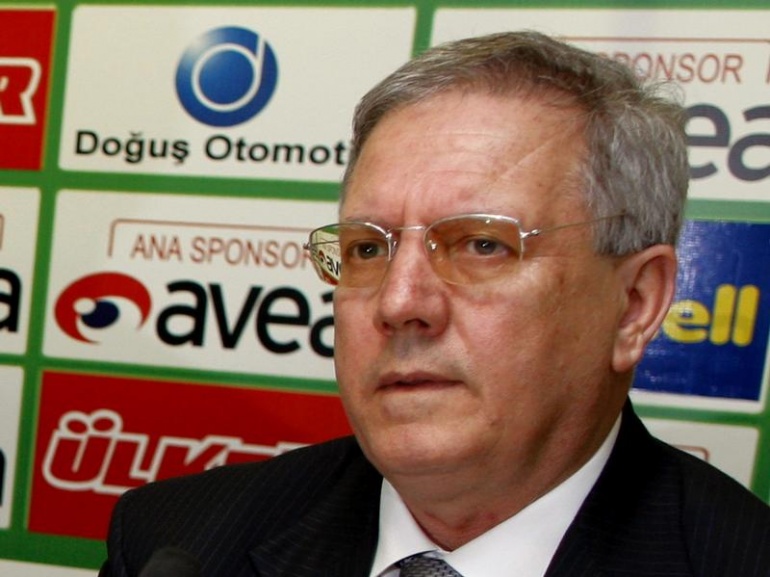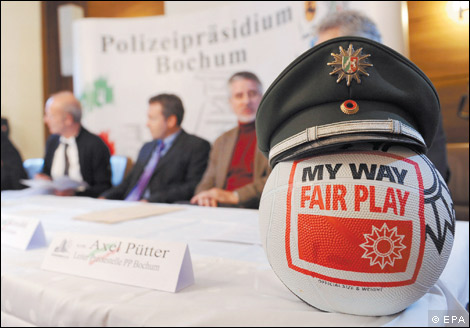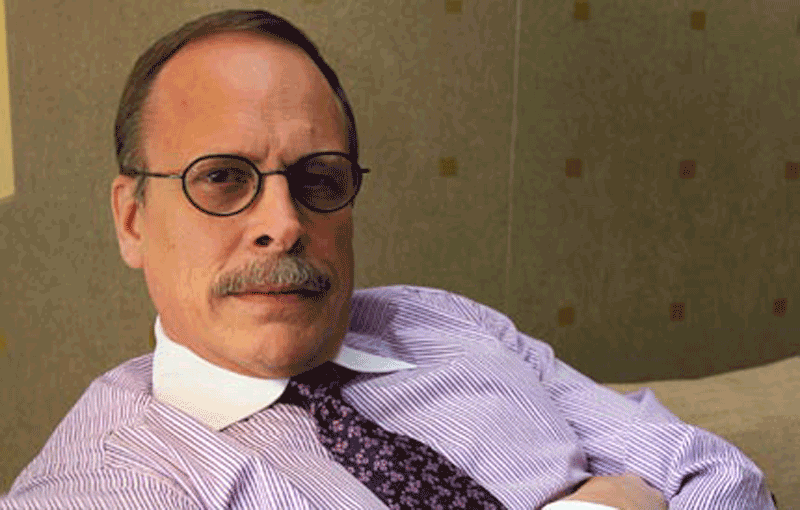By Andrew Warshaw
August 22 – FIFA are being urged to consider a radical programme of financial rewards and amnesties designed to crack down on match-fixing and illegal betting, regarded as the biggest scourge affecting the global game.
Proposals for the unprecedented information-gathering initiative will be presented by the end of this year in the hope of persuading as many whistle-blowers as possible to come forward.
The new approach for tackling organised crime is the brainchild of FIFA’s head of security, Chris Eaton, the official at the forefront of the worldwide effort to crackdown on match-fixing.
Eaton hopes FIFA President Sepp Blatter will endorse the idea as part of his new anti-corruption drive unveiled when he won a fourth term of office in June.
“The president has a mandate from Congress to attack corruption and has shown by his actions recently that he practises what he preaches,” Eaton told insideworldfootball in an exclusive interview.
“The idea is to establish a monetary rewards programme and an amnesty – both for a specific period of time – for players, referees and administrators who have been unfairly compromised.”
FIFA have already set up an early warning system to detect suspicious betting patterns and has pledged €20 million (£17 million/$29 million) to Interpol over 10 years to help combat the problem.
However, Eaton’s plan takes the crackdown on match-fixing to new levels.
If implemented, it would be the first time that FIFA has engaged in such a programme within their entire hierarchy.
Eaton will not say how much money will be paid out to whistle-blowers but payouts will be based on the quality of the information provided.
He is convinced the proposals, if approved, will have teeth.
“The threat of international criminals manipulating football matches has grown considerably, in line with an enormous growth in the level and variety of gambling being offered internationally via the internet and telephone,” he said.
“FIFA needs to take serious and fulsome action to gain the confidence of those involved in match fixing, some of whom may just regret what has happened to them.”
Detailed recommendations will be issued by Eaton and his team before the end of this year.
If approved, the scheme – which includes protection and rehabilitation of genuine victims of unfair intimidation – would run for six months starting early next year.
FIFA would firstly offer a reward to any member of the public or those inside the game for material information that helps in either identifying those behind match fixing or any player, official or football administrator who is compromised.
Any reward would be subject to the outcome and accuracy of the information provided.
“We will not just be taking peoples’ word for it,” continued Eaton, who is a former boss of Interpol.
“We’ll be very cautious that the information is accurate.
“No one can just come forward with a load of rubbish.”
This would be followed by an amnesty programme which would run for around three months for anyone “who wants to make a clean breast of it”.
“We are not suggesting an amnesty from criminal investigation or prosecution,” explained Eaton.
“That is a matter for governments and national police, not FIFA.
“Principally, people who could benefit from a FIFA amnesty are players, officials or administrators who have been caught in an uncompromising situation that they wish to free themselves from.”
With so many match-fixing cases – many of them originating from illegal Asian betting rings – being reported across the globe, Eaton says there was a need for a proper strategy to find out how deeply seated the problem is.

The chairman of Turkish champions Fenerbahçe, Aziz Yıldırım (pictured), is currently under investigation for alleged match rigging, while in South Korea 10 players have been banned for life.
As reported by insideworldfootball last month, Eaton has long believed that struggling players from poorer nations are being recruited to rig results of matches in exchange for promises of lucrative contracts in Europe and South America.
Such exploitation of those from humble origins, Eaton says, is nothing more than trafficking by organised gangs of criminals.
He hopes the incentive of being paid legitimately will persuade those involved in corruption to come clean and help weed out the offenders.
“We recognise that some players and even referees who want to talk may put themselves in professional and even physical jeopardy,” he said.
“We would offer them protection – and even, in some circumstances, rehabilitation.”
As an example, Eaton pointed to the seven Zambians recently convicted as part of a high-profile match-fixing scandal in Finland.
“Some of those young players, it would seem to me, were influenced by older players,” he said.
“It might be those sort of players would qualify for rehabilitation.
“Intimidation is a huge problem.
“Players from less developed parts of the world are especially vulnerable.”
Eaton went on to say that official probes in some countries were simply taking too long to snare the culprits.

Europe’s largest ever match-fixing trial, in Bochum, Germany, started in 2009 and found that over 100 games had been manipulated but it took over two years to conclude.
“Who knows during that period how many matches were fixed by the same people who were eventually convicted?” asked Eaton.
“We can’t wait for police in some countries to run their own long-term investigations.
“We want to take action against these ruthless criminals immediately.”
“The programme is not a panic move.
“It’s a professional move forward.
“Ultimately, the goal is to minimise if not completely eradicate match-fixing.”
Contact the writer of this story at zib.l1744970937labto1744970937ofdlr1744970937owedi1744970937sni@w1744970937ahsra1744970937w.wer1744970937dna1744970937
Related stories
August 2011: Match officials banned by FIFA in match-fixing scandal
May 2011: FIFA and Interpol reveal match fixing in up to 300 matches worldwide
March 2011: FIFA and UEFA take on in match betting
March 2011:·“Match-fixing robs it of the core values” claims top UN officials

